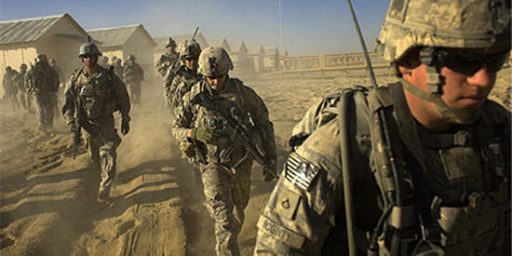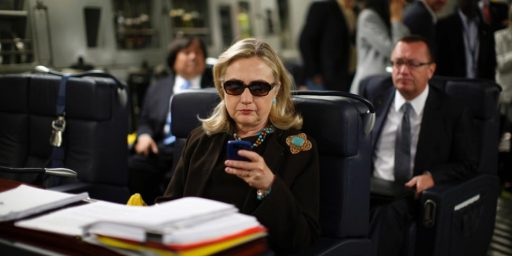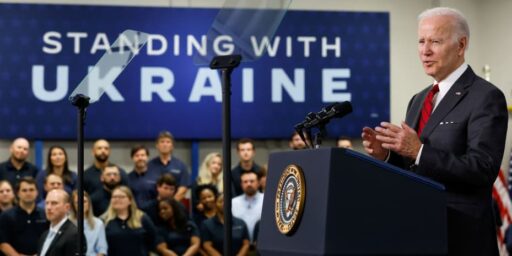IN BED-ED
John Leo notes some interesting disparities in Iraq War aftermath coverage:
If you rely on newspapers and tv networks for your news, chances are you have no idea that the controversial performance of western reporters in Iraq is emerging as a big issue. The mainstream media have virtually ignored the stunning charges made by John Burns, the Pulitzer Prize-winning reporter for the New York Times. But those charges are all over the Internet and carried by Fox News and conservative commentators.
In the new book Embedded, Burns says the vast majority of correspondents in prewar Iraq played ball with Saddam Hussein and downplayed the viciousness of the regime. He says Iraq was “a grotesque charnel house” and a genuine threat to America, but to protect their access, the reporters did not tell the truth. Burns names no names (he should now), but he is particularly contemptuous of the BBC and CNN.
Burns’s comments are echoed by those of U.S. District Court Judge Don Walter of Shreveport, La. This is another Internet-only story that you aren’t likely to find in newspapers. Walter was vehemently antiwar but changed his mind after an assignment in Iraq as a U.S. adviser on Iraq’s courts. He says we should have invaded sooner to halt the incredible butchery and torture that the United Nations, France, and Russia knew all about and were quite willing to tolerate. And he is distressed by the reporting on Iraq now: “The steady drip, drip, drip of bad news may destroy our will to fulfill the obligations we have assumed. WE ARE NOT GETTING THE WHOLE TRUTH FROM THE NEWS MEDIA.” (Capitals are his.)
Interesting. The fact that professional media need continual access to sources makes them much more vulnerable to these concerns than bloggers and short-term commentators. I’m honestly not sure where one draws the line in balancing these concerns. Ending the practice of building stories around quotes from anonymous sources might be a good start, though. Those unwilling to take responsibility for their words usually have a hidden agenda.
Update (0858): Dean Esmay has a link-filled post on this general topic as well.






That would be a dream come true – ending the practice of building stories around quotes from anonymous sources, that is.
—